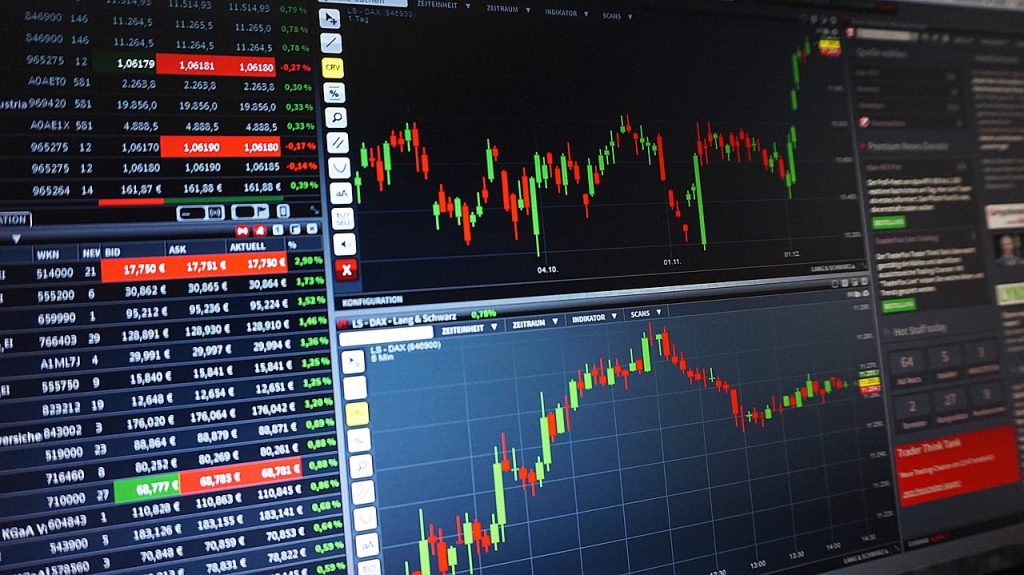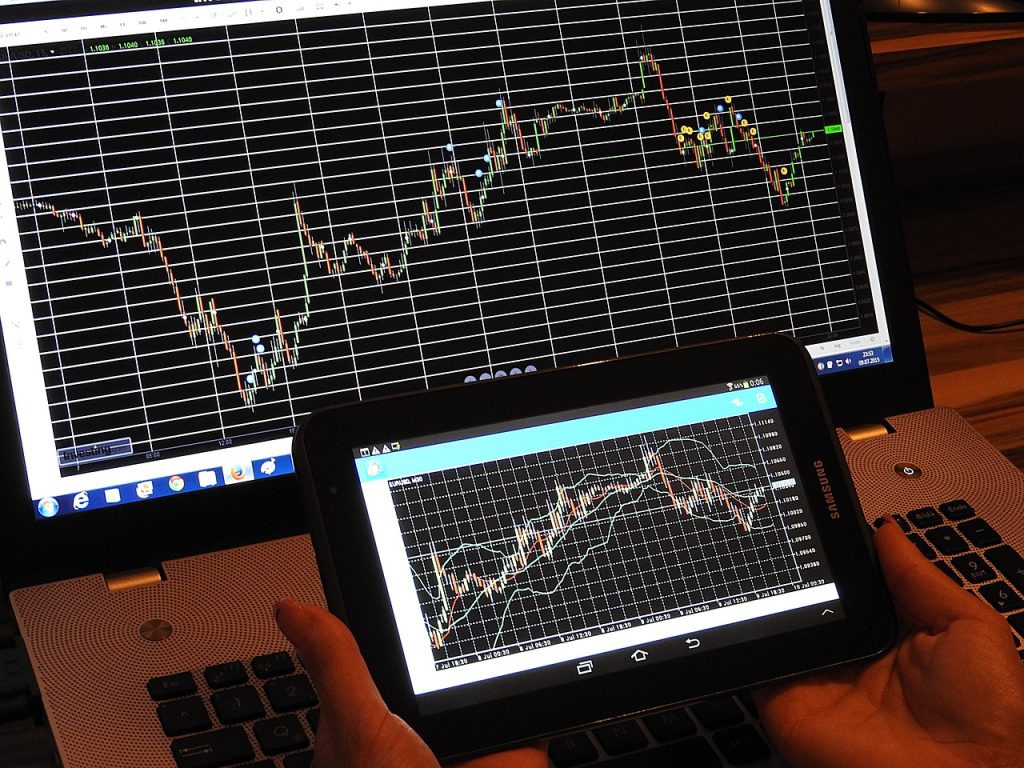If you’ve ever wondered whether forex trading is available on weekends, we’ve got the answer for you. The foreign exchange market is a hub of constant activity, but does this bustling market also operate on weekends? In this article, we’ll explore the availability of forex trading during those much-anticipated days off, allowing you to make informed decisions about your trading strategy. So, let’s dive in and find out if the world of forex is open for business when the weekend rolls around.
Introduction
Forex trading, also known as foreign exchange trading, is the buying and selling of currencies in the foreign exchange market. It is a global decentralized market where individuals, institutions, and even governments participate in the trading of currencies. Forex trading operates 24 hours a day, except on weekends. In this article, we will explore the world of forex trading, including the basics, trading hours, weekend trading, risks and challenges, and alternatives.
Definition of Forex Trading
Forex trading refers to the buying and selling of currencies in the foreign exchange market. Traders aim to profit from the fluctuations in exchange rates between different currencies. It is the largest and most liquid financial market in the world, with an average daily trading volume of around $6.6 trillion. Participants in the forex market include banks, hedge funds, retail traders, and central banks.
Explanation of Weekends in Forex Trading
Unlike other financial markets like stocks or commodities, the forex market operates 24 hours a day, five days a week. The market opens on Sunday evening (EST) and closes on Friday evening. The reason for the closure on weekends is that the forex market is primarily driven by the business hours of major financial centers across different time zones. As one financial center closes, another one opens, allowing for continuous trading during weekdays.
Forex Trading Basics
Understanding the Forex Market
The forex market is a decentralized market where participants trade currencies. It does not have a physical location like a stock exchange. Instead, it operates through electronic networks, with trading occurring over-the-counter (OTC). The forex market is influenced by various factors such as economic indicators, geopolitical events, and central bank policies. Understanding these factors and their impact on currency values is essential for successful forex trading.
Currency Pairs
Forex trading involves trading currency pairs. A currency pair represents the value of one currency relative to another. The first currency in the pair is called the base currency, while the second currency is known as the quote currency. For example, in the currency pair EUR/USD, the euro is the base currency, and the US dollar is the quote currency. The exchange rate indicates how much of the quote currency is needed to buy one unit of the base currency.
Major Players in Forex Trading
Several major players participate in forex trading. Banks, particularly central banks, have a significant impact on the forex market as they can influence interest rates and implement monetary policies. Commercial banks also trade currencies on behalf of their clients. Hedge funds and institutional investors are important participants in the forex market due to their large trading volumes. Lastly, retail traders, including individual traders, contribute to the market liquidity.
How Forex Trading Works
Forex trading involves speculating on the future movements of currency pairs. Traders aim to buy a currency pair at a low price and sell it at a higher price to make a profit. To trade forex, one needs to open an account with a forex broker, which provides a trading platform and access to the market. Traders can execute trades by placing orders to buy or sell currency pairs. The forex market operates on the principle of supply and demand, with prices constantly changing based on market dynamics.
Benefits of Forex Trading
Forex trading offers several benefits to participants. First, it is a highly liquid market, which means traders can enter and exit positions quickly without significant price movements. The forex market also offers high leverage, allowing traders to control larger positions with a relatively small amount of capital. Additionally, the market is open 24 hours a day during weekdays, providing traders with flexibility in terms of trading hours. Finally, the forex market is highly accessible, with numerous online brokers offering trading platforms and educational resources.

Trading Hours in Forex
Weekdays Trading Hours
Forex trading operates 24 hours a day from Sunday evening (EST) to Friday evening (EST). While the market is technically open throughout this period, trading activity and liquidity vary depending on the trading sessions in different financial centers. The most active trading sessions occur during the overlap of sessions, which we will discuss later in this article.
Forex Market Sessions
The forex market is divided into three main trading sessions: the Asian session, the European session, and the North American session. Each session corresponds to the business hours of major financial centers in different regions of the world. The Asian session starts with Tokyo, followed by Singapore, Hong Kong, and other financial centers in the Asia-Pacific region. The European session begins with Frankfurt and continues with London. The North American session starts with New York. These sessions overlap at certain times, leading to increased trading activity.
Overlap of Sessions
The overlap of sessions is a crucial period in forex trading as it usually leads to higher trading volumes and increased volatility. The most significant overlap occurs between the European and North American sessions, where traders from both regions are active simultaneously. This overlap, known as the London-New York overlap, often results in sharp price movements and trading opportunities. Traders who prefer volatility and faster-paced markets often focus their trading activities during these overlapping hours.
Weekend Trading Hours
The forex market is closed on weekends, meaning there is no trading activity during this period. The market closes on Friday evening and opens again on Sunday evening. The closure of the market on weekends allows participants to take a break from trading and also allows time for market participants to assimilate news and events that may have occurred during the weekend. It also reduces the risk of price gaps as there are no trading opportunities available during this time.
Weekend Trading in Forex
Forex Market Closures
The closure of the forex market on weekends presents some challenges for traders who prefer to trade actively. As mentioned earlier, the lack of trading opportunities during weekends prevents participants from taking advantage of potential price movements. Traders must be aware of these closures and plan their trading strategies accordingly.
Limited Trading Opportunities
During weekends, the forex market is closed, resulting in limited trading opportunities. This lack of activity can be frustrating for traders who thrive on constant market movements. However, it is important to note that the closure on weekends is necessary to allow market participants to recharge and prepare for the upcoming trading week.
Factors Affecting Weekend Trading
Although the forex market is closed on weekends, certain factors can influence weekend trading. These factors include geopolitical events, economic indicators released over the weekend, and unexpected news that can impact currency values. While trading is not possible during weekends, these factors can have an impact when the market reopens on Sunday evening. Traders should stay informed and be prepared for potential market volatility when the new trading week begins.

Availability of Forex Trading on Weekends
Forex Trading on Saturdays
Forex trading does not normally occur on Saturdays due to the weekend closure of the market. However, there are exceptions to this rule. Some brokers or trading platforms offer limited trading on Saturdays, allowing traders to access the market and execute trades. It is essential to check with your broker or trading platform to determine if weekend trading is available.
Forex Trading on Sundays
Forex trading typically resumes on Sunday evening (EST). The market opens with the Asian session, which is followed by the European session and subsequently the North American session. Traders can take advantage of the Sunday market open to analyze the market, set trading strategies, and prepare for the upcoming trading week.
Differences in Weekend Trading
Weekend trading differs from weekday trading in terms of market dynamics. The lack of trading activity during weekends can result in lower liquidity and wider spreads. As a result, traders may encounter challenges such as slippage and reduced order execution speed. It is essential to consider these differences and adjust trading strategies accordingly.
Trading Volume on Weekends
Trading volume on weekends is typically lower compared to weekdays due to the closure of major financial centers. The reduced participation can result in thinner markets and potentially wider bid-ask spreads. Traders should exercise caution and be mindful of the lower liquidity when trading during weekends.
Weekend Gaps in Forex
Definition of Weekend Gaps
A weekend gap, also known as a price gap, refers to the significant difference in price between the closing price on Friday evening and the opening price on Sunday evening. It occurs due to the absence of trading activity during weekends. Weekend gaps can be either positive (when the price gaps up) or negative (when the price gaps down). These gaps can provide trading opportunities for those who anticipate or react to the price movement.
Causes of Weekend Gaps
Several factors can cause weekend gaps in the forex market. These include news releases, geopolitical events, economic data, and other unforeseen events that occur during the weekend. When the market reopens on Sunday evening, the first traders to react to these events can cause significant price gaps.
Trading Strategies for Weekend Gaps
Traders can employ different strategies to take advantage of weekend gaps. One approach is to place pending orders before the market closes on Friday, anticipating potential weekend gaps. Another strategy is to monitor news and events closely during the weekend and take immediate action when the market opens. However, it is crucial to consider the risks associated with trading weekend gaps, including potential slippage and increased volatility.

Risks and Challenges of Weekend Trading
Low Liquidity
One of the key risks of trading during weekends is the low liquidity in the market. With major financial centers closed, the market is less active, resulting in thinner markets and potentially wider spreads. Low liquidity can make it difficult to execute trades at desired prices and may increase slippage.
Increased Spreads
low liquidity during weekends can also lead to increased spreads. Spreads refer to the difference between the bid and ask prices of a currency pair. During periods of low liquidity, spreads tend to widen as market makers and liquidity providers adjust their pricing to accommodate the lack of trading activity. Higher spreads can erode profitability for traders.
Volatility
while the forex market can be volatile during weekdays, weekends often witness lower volatility due to reduced trading activity. However, when unexpected events or news emerge during the weekend, the market can experience sudden spikes in volatility when it reopens on Sunday evening. Traders must be prepared for potential increased volatility when trading during the opening hours of the new trading week.
Market Manipulation
With lower participation and reduced regulatory oversight during weekends, the risk of market manipulation increases. Traders should be cautious of sudden price movements and questionable trading activities during the weekend. It is important to choose reputable brokers and platforms that adhere to regulations and provide a secure trading environment.
Lack of News and Events
Weekends are typically quieter in terms of economic data releases and major news events. This lack of new information can make it challenging for traders to make fully informed trading decisions. It is crucial to stay updated on important news and events that occurred during the weekend, as these can have a significant impact on the market when trading resumes on Sunday evening.
Weekend Trading Alternatives
Cryptocurrency Trading
For those who seek trading opportunities during weekends, cryptocurrency trading provides an alternative. Unlike the forex market, cryptocurrency markets operate 24/7, allowing for continuous trading even on weekends.
Stock Trading
While the forex market is closed on weekends, stock markets also offer trading opportunities. Traders can participate in stock trading through exchanges that operate on weekends, such as the New York Stock Exchange’s extended trading hours.
Commodity Trading
Another alternative to forex trading on weekends is commodity trading. Commodities, such as gold, silver, oil, and agricultural products, can be traded through futures exchanges that operate even when the forex market is closed.

Weekend Trading Strategies
Carry Trading
Carry trading is a strategy where traders take advantage of interest rate differentials between currencies. It involves borrowing in a low-interest-rate currency and investing in a high-interest-rate currency. This strategy can be implemented during weekends by analyzing interest rate trends and using pending orders to capture potential interest differentials that may develop during the weekend.
Swing Trading
Swing trading is a strategy that aims to capture short-term price movements within a larger trend. Traders can analyze charts and technical indicators during weekends to identify potential swing trading opportunities. By placing pending orders based on their analysis, traders can position themselves for potential trades when the market opens on Sunday evening.
News Trading
News trading involves taking advantage of price movements resulting from major news releases. While significant news releases during the weekend are relatively rare, traders can still prepare for potential market-moving events by monitoring the news and economic indicators released during the weekend. When the market reopens, traders can quickly react to any unexpected news and its impact on the currency market.
Social Trading
Social trading allows traders to follow and copy the trades of successful traders. During weekends, traders can use social trading platforms to analyze the trading strategies of experienced traders. By studying their past trades and performance, traders can gain insights and ideas for their own trading strategies.
Conclusion
Forex trading is not available on weekends due to the closure of major financial centers. While this may limit trading opportunities during this period, it also ensures time for market participants to recharge and prepare for the upcoming trading week. Weekend gaps, low liquidity, increased spreads, and reduced volatility are some of the risks and challenges associated with weekend trading. However, traders can explore alternatives such as cryptocurrency, stock, and commodity trading to continue trading during weekends. By employing suitable weekend trading strategies and staying informed about market events, traders can make the most of their trading activities in the forex market.


